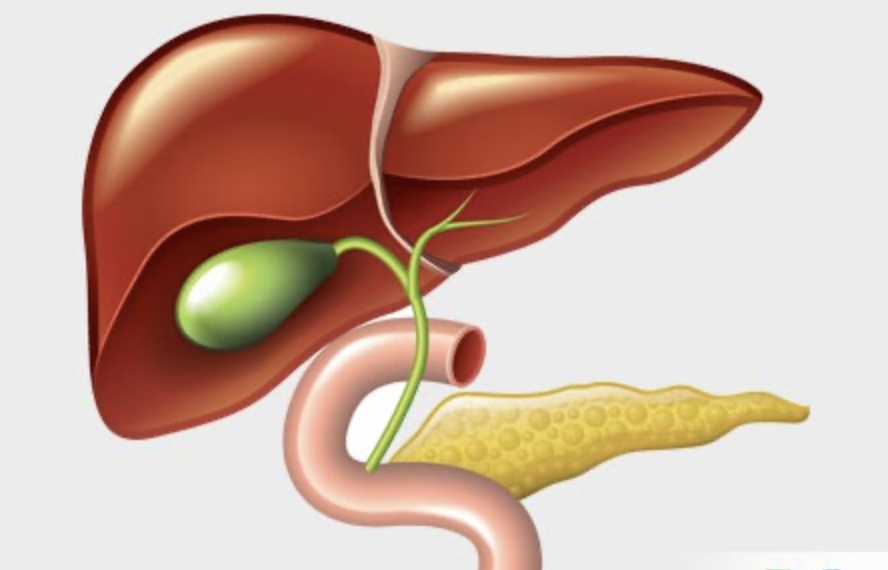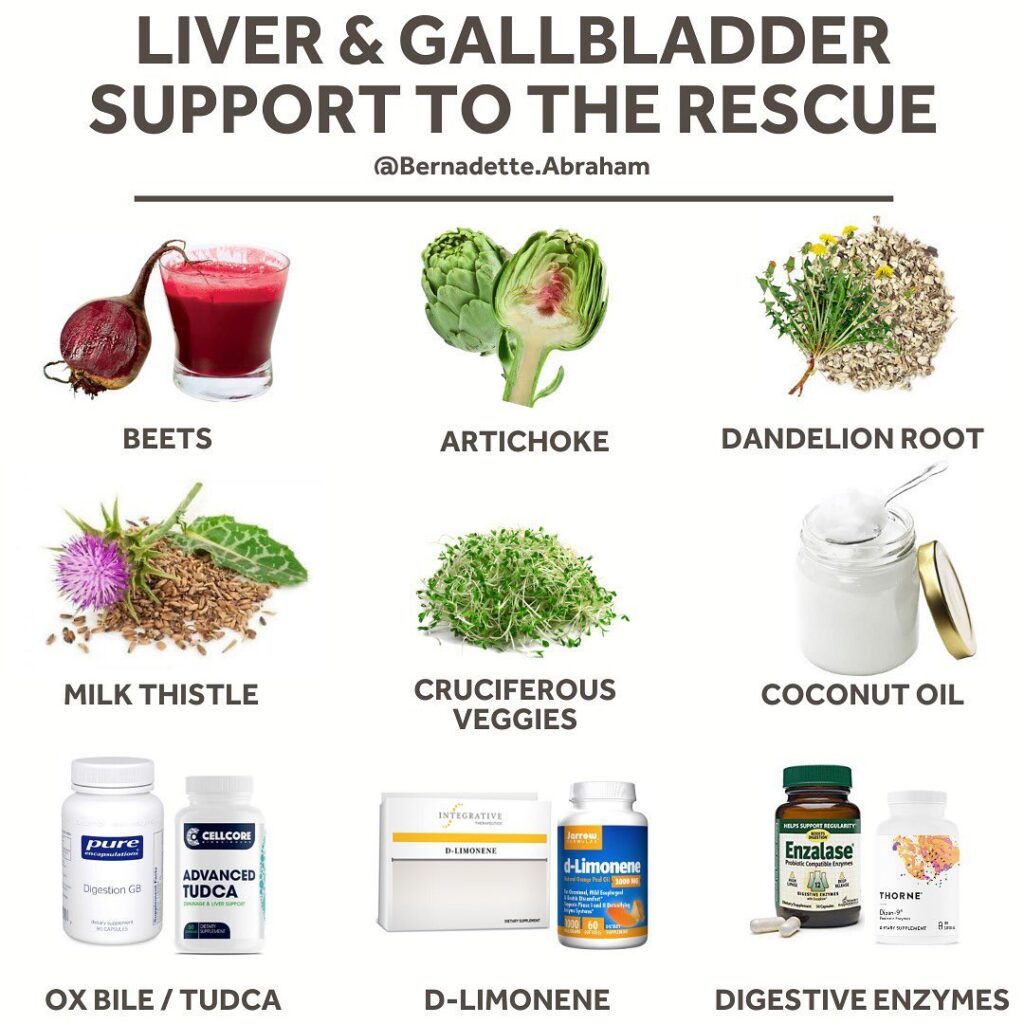Liver & Gallbladder Health

The gallbladder is NOT an optional organ, and yet gallbladder removal is one of the most common surgeries today.
When it’s life threatening, of course surgery is needed. BUT! You don’t wake-up with an infection or a sac filled with gallstones overnight!
Knowing the early warning signs is important because hello… the gallbladder is NOT optional.
Here’s how it works. The liver makes bile – a soup-like fluid that drips out of the liver and gets stored in the gallbladder – yes, our very own storage tank.
When we eat a meal containing fats, the gallbladder contracts and dumps a concentrated amount of bile into the intestines to:
1- help emulsify fats so we can better absorb fats and fat soluble vitamins A, D, E & K
2- maintain a balanced, diverse microbiome thanks to its antimicrobial action
3- excrete toxins through stool
If you’ve already had your GB removed, then it’s important to take bile salts with meals to mimic the same action.
But eating a high sugar/refined carb diet that leads to high cholesterol, or eating bad oils and inflammatory fats (i.e. trans fats), or being exposed to many toxins & ongoing stress, or having suboptimal magnesium and digestive function – all of these can cause thicker and more sludge-y bile which makes it prone to crystallization/stones.
So removing an infected gallbladder just removes the victim – you still haven’t addressed the true culprit!
What are some warning signs?
✔️your stool floats, is consistently lighter in color, or there’s a greasy film in the water indicating fat malabsorption
✔️your skin is always dry despite eating healthy fats
✔️pain on the right side of your ribs, especially after eating a fatty meal
✔️an elevated “alkaline phosphatase” marker (even within the reference range) in typical lab work

Rule #1 – a healthy gallbladder needs a healthy liver.
The liver makes bile so regardless if you have a gallbladder or not, your body still drips bile out from the liver.
The difference is that without your storage tank a.k.a. your gallbladder, it’s like having a leaky broken faucet that can’t turn on full force when needed.
This is why supplementing with bile and a digestive enzyme high in lipase to break down and absorb fats with every meal is generally recommended to mimic gallbladder action.
But keeping your liver healthy and bile thin and free-flowing is the ultimate goal, and there are many natural ways to support it:
✔️Lots of raw veggies, especially crucifers. Eating ¼ cup of broccoli sprouts per day can help decrease bilirubin deposits and the likelihood of gallstones forming in the gallbladder.
✔️Bitter herbs like dandelion root and milk thistle can help decongest the liver, reduce bile duct inflammation and enhance bile production and flow into the gallbladder. Usually available as teas or tinctures.
✔️Beets and artichoke also help with bile flow. Enjoy a fresh raw beet juice with carrot, apple & lemon, or steam some artichoke and eat the pulp in the leaves.
✔️Switching to mostly coconut oil can help ease digestion because it doesn’t need bile acids for absorption since it gets absorbed in the upper intestines.
✔️D-Limonene is a citrus oil extract that can literally cut through grease & grime like dish wash soap. One study showed a 67% success rate in DISSOLVING gallstones without any other interventions!
✔️Limit anything that burdens the liver; alcohol, coffee, toxins, medications, man-made sweeteners like high fructose corn syrup or anything high in fructose like agave syrup.
Hope this was helpful. Please do consult a practitioner before starting any supplements.
If you have any comments or questions, please leave them below.

